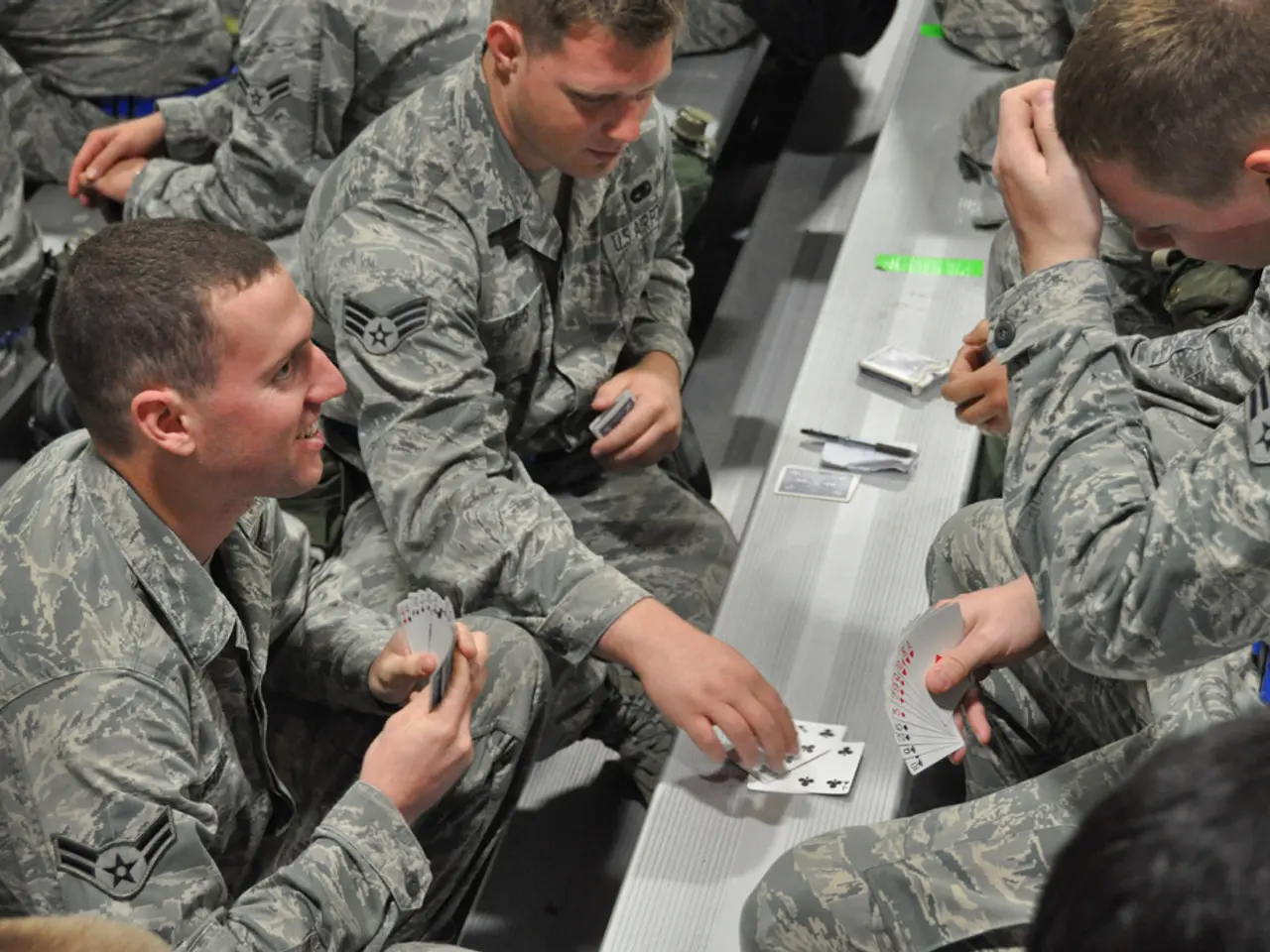Guide to Poker Gameplay
For those with a keen interest in poker, the prospect of winning millions may seem like an elusive dream. However, for professional poker players, it is a reality achieved through dedication, structured learning, and strategic mastery.
Professional poker players hone their skills in games like Texas Hold'em, Omaha, and 7-Card Stud, with Texas Hold'em being the most popular. To excel in these games, players embark on a journey that encompasses various aspects of the game, from basic rules to advanced strategies.
**Structured Training and Education** Many players make use of dedicated poker training programs and apps, such as Poker Trainer, which offer drills targeting different aspects of the game. These apps help players practice GTO (Game Theory Optimal) strategies and hand evaluation, building solid fundamentals and confidence. Comprehensive courses like Steve Blay’s No-Bull Poker Course combine theoretical knowledge with interactive simulations, enabling players to apply concepts in real-time scenarios.
**Mastering Different Game Variants and Strategies** Professional players study the nuances of different poker variants, understanding foundational principles such as position, hand selection, pot odds, and reading opponents. Advanced players further explore GTO strategies, exploitative play, implied odds, multi-table tournament techniques, and psychological warfare — all adapted to specific game types.
**Practice and Experience** Playing a high volume of hands, often thousands per day, helps professionals recognize patterns, refine instincts, and improve hand reading. Simulated opponents, including those who emulate human or GTO styles, enable players to practice sophisticated strategies safely and efficiently.
**Emotional Control and Tilt Management** Top players develop mental resilience to manage emotions and avoid "tilt" — a state of frustration that leads to poor decisions. Maintaining emotional control is crucial for consistent long-term success since poker involves variance and inevitable losing streaks.
**Bankroll Management and Game Selection** Starting at lower stakes and keeping detailed records of results helps players identify profitable games and manage risk properly. This ensures they grow their bankroll sustainably and move up stakes only when ready.
**Continuous Learning and Adaptation** Poker is an evolving game with new strategies and tools constantly emerging. Professionals commit to ongoing learning through studying new content, analyzing hands, and staying current with trends and software developments.
For those who prefer a solitary experience, Video Poker is an option. For those not in Vegas, Learning How to Play Poker Online is an accessible alternative. Knowing how to Play Poker in a Casino is beneficial, and Poker Basics are essential for beginners. A glossary of Poker Terms is available for understanding poker jargon, and Poker Betting Tips are available for consideration.
In sum, the journey to becoming a professional poker player capable of winning millions requires dedicated study, consistent practice using advanced training tools, psychological discipline, strategic adaptability across multiple game variants, and continuous self-improvement supported by robust bankroll and game management practices. Whether playing at a casino, in a poker room, or online, these skills can be applied to maximise your chances of success.
Casino-and-gambling enthusiasts can explore poker, a casino-games variant, and improve their skills by understanding and practicing GTO (Game Theory Optimal) strategies and hand evaluation, using apps like Poker Trainer. Aspiring professionals may also choose to delve into advanced poker strategies such as poker game variants, position, hand selection, pot odds, and reading opponents to excel at games like Texas Hold'em and Poker.




